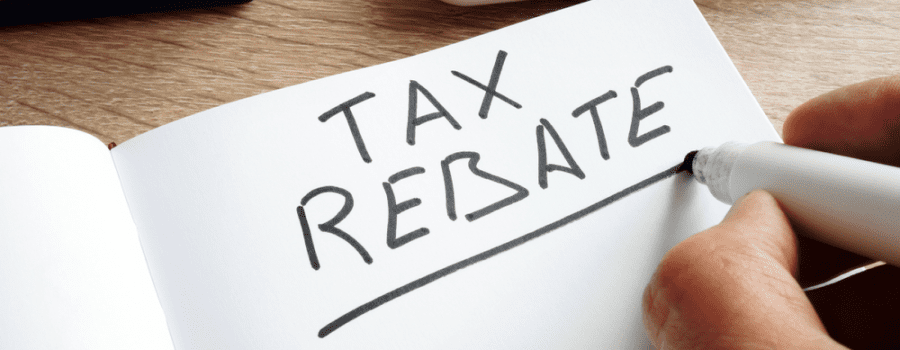19-07-2022 |
The Income Tax* Act mandates all persons and organisations to pay income tax if the total income generated in a financial year exceeds the income tax slab. But, Section 87A of the income tax act offers rebates that help you lower your net income tax liability.
Section 87A - Income Tax Act
The Government of India introduced Section 87A in the Finance Act of 2003. Over thfhure years, the maximum rebate amount has changed several times.
At the time of introduction, the maximum amount a taxpayer could deduct was ₹2,000. The 2016 Union Budget raised the amount to ₹5,000. The next year, it was again revised to ₹2,500 for individuals with a net taxable income of up to ₹3,50,000. In 2019, it was announced in the Union Budget that the net taxable income for the rebate u/s 87A would increase to ₹5 Lakh, and the maximum amount of rebate would be ₹12,500.
Today, the rebate under section 87A is for taxpayers with a total income of less than 5 Lakh in a financial year. This income is calculated after Chapter VIA deductions. When you claim the rebate, the amount of taxes payable becomes nil. The objective of the act is to reduce the tax burden on individuals in the lower salary bracket.
The income tax* rebate u/s 87A is offered to individuals only. People of Hindu Undivided Families, companies, BOI/AOP, or firms cannot claim the benefits.
Meaning of Income Tax Rebate

Income tax rebate refers to a form of a refund that you can claim on taxes* you are paying to the Income Tax Department, provided you meet the criteria. When an individual pays more taxes* than what he owes to the government for that particular financial year, he can receive a tax* rebate. To claim a tax* rebate successfully, you must compute your tax liability accurately and file your income tax returns before a scheduled time.
Section 87A - Key Pointers
You must be an Indian resident to avail of the rebate.
The refund is offered to Indian residents only. You need to show your Aadhaar Card and birth certificate as proof of your citizenship when you apply for a rebate u/s 87A. Non-resident Indians are not eligible for the rebate under this section.
The rebate is for both men and women.
Any individual whose income falls under the specified bracket can file for the rebate. Your gender does not change the act.
You must have a specific income for the rebate to apply.
Your income must be below ₹5 Lakh with a tax* liability that exceeds ₹2,000 to be eligible for the rebate under Section 87A.
Rebates are not for citizens above 60 years.
If you are a senior citizen above the age of 60, you cannot file for a tax* rebate. You will need to look for other sections that offer exemptions and deductions to reduce your net income tax liability.
The rebate is for individuals only.
According to the Income Tax Act, the rebate is not for firms, companies, and Hindu undivided families. Section 87A of the income tax act is only for a person filing income tax* returns.
How to Claim Section 87A Rebate?
The process to claim the rebate is as follows:
Determine your total gross income for a particular assessment year.
Subtract your tax deductions for investments, tax savings, etc.
After subtracting the tax deductions, you will know your total income.
Prepare your ITR to declare your total taxable income and tax deductions.
If the total income is not above ₹5 Lakh, claim a tax* rebate.
You are eligible for a maximum rebate of ₹12,500 for the AY 2021-2022.
The below example helps to understand the calculation for the rebate.
Total Income |
₹6,75,000 |
Section 80C Deductions |
₹1,50,000 |
Section 80D Deductions |
₹15,000 |
Section 80G Deductions |
₹25,000 |
Taxable Income |
₹4,85,000 |
Income Tax Payable (@5%) |
₹11,750 |
Less: Rebate u/s 87A |
₹11,750 |
Taxes payable |
Nil |
You are eligible for Section 80C deductions up to ₹1.5 Lakh. Investments Section 80C deductions include a public provident fund, life insurance policy, or equity-linked savings schemes. You can also apply for Section 80CCD for contribution to NPS, 80D for medical insurance, and 80G for donations.
The maximum tax* rebate you can claim is ₹12,500. Therefore, if your total tax* payable is below ₹12,500, you do not have to pay any taxes. It is vital to understand that the application of rebate to the total tax is before adding the health and education cess of 4%.
Rebate Against Various Tax Liabilities
Some tax liabilities permit claiming Section 87A rebate.
Regular income taxable at the income tax* slab rate.
Short-term capital gains are liable to taxes at a flat rate of 15%. These gains are calculated on equity-oriented schemes of mutual funds and listed equity shares under Section 111A of the Act.
Long-term capital gains earned on the sale of any capital assets are taxable under Section 112 of the Income Tax Act.
You cannot claim a rebate under Section 87A for long-term capital gains on equity-oriented mutual funds and equity shares. These instruments fall under Section 112A.
Wrapping up
Section 87A of the income tax act offers individuals with a total income of less than ₹5 Lakh to claim a rebate of up to ₹12,500. While claiming the refund under Section 87A is useful, it is vital to save taxes* by investing in tax*-saving financial instruments. If you still haven’t made your investments, buy an online life insurance plan to keep yourself financially protected and enjoy tax* benefits.
You can get a reliable life insurance plan to save taxes and secure your loved ones with Tata AIA Life Insurance. We provide customers with many payout and coverage options to suit their requirements. We also offer a wide range of beneficial add-on riders#.
L&C/Advt/2022/Jul/1568







 FOR EXISTING POLICY
FOR EXISTING POLICY 
 FOR NEW POLICY
FOR NEW POLICY 




